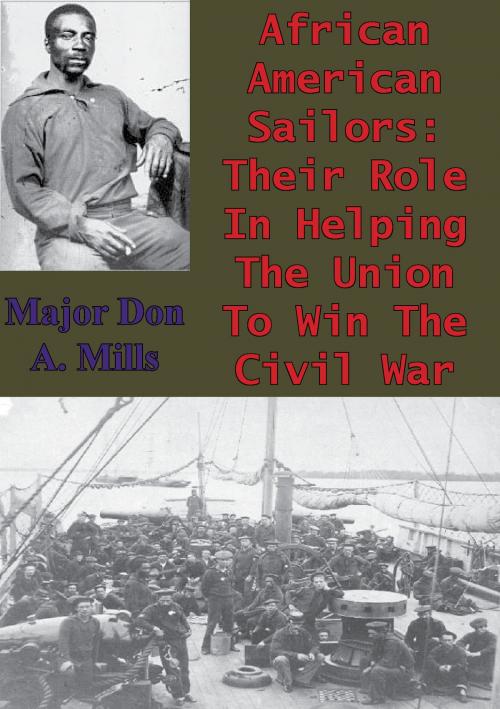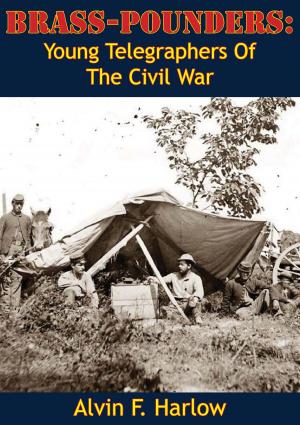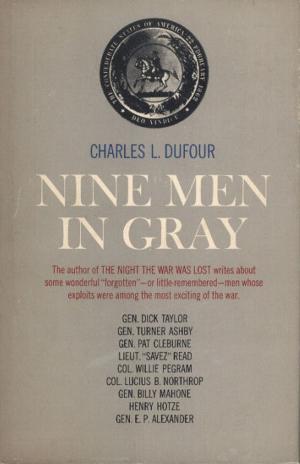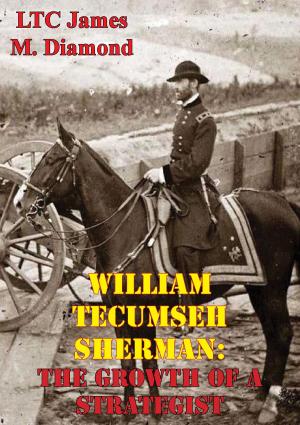African American Sailors: Their Role In Helping The Union To Win The Civil War
Nonfiction, History, Modern, 19th Century, Americas, United States, Civil War Period (1850-1877), Military| Author: | Major Don A. Mills Sr. USMC | ISBN: | 9781782897583 |
| Publisher: | Golden Springs Publishing | Publication: | August 15, 2014 |
| Imprint: | Golden Springs Publishing | Language: | English |
| Author: | Major Don A. Mills Sr. USMC |
| ISBN: | 9781782897583 |
| Publisher: | Golden Springs Publishing |
| Publication: | August 15, 2014 |
| Imprint: | Golden Springs Publishing |
| Language: | English |
Since the very beginning of American history, African Americans have served alongside their white counterparts in virtually every major armed conflict on the high seas. This was especially true during the Civil War. The Union Navy continued to experience a shortage of available manpower to sufficiently man its fleet of 600 plus ships. Life aboard naval vessels was particularly harsh and naval recruiters did not hesitate to enlist African Americans, free and slave, to ensure sufficient manning.
African American sailors saw their service as an opportunity to rise above the status of social discrimination and segregation. Because of the shortage of able-bodied seamen in the Union Navy, African Americans were encouraged to join the naval service at a time when the Army and Marine Corps excluded their service. In an effort to attract African American recruits and to have them reenlist when their terms expired, the Navy tended to treat African American sailors with some degree of equality and respect once at sea. African American sailors were messed and quartered alongside their white counterparts. Per the leadership of the ship’s captain, segregation and discrimination were regulated or was less prevalent than in 19th century America.
The accomplishments of the Union Navy had a significant impact on its winning the war. The Union Navy could not have achieved its mission without nearly one-fifth of its total manpower, the African American sailor. Their numbers provided the credible force required to execute the strategic aims of the Anaconda Plan and helped to ensure a Union victory. The service of African American sailors allowed the North to end the war much sooner than it would have without their service, thus preventing an even greater number of loss to human life.
Since the very beginning of American history, African Americans have served alongside their white counterparts in virtually every major armed conflict on the high seas. This was especially true during the Civil War. The Union Navy continued to experience a shortage of available manpower to sufficiently man its fleet of 600 plus ships. Life aboard naval vessels was particularly harsh and naval recruiters did not hesitate to enlist African Americans, free and slave, to ensure sufficient manning.
African American sailors saw their service as an opportunity to rise above the status of social discrimination and segregation. Because of the shortage of able-bodied seamen in the Union Navy, African Americans were encouraged to join the naval service at a time when the Army and Marine Corps excluded their service. In an effort to attract African American recruits and to have them reenlist when their terms expired, the Navy tended to treat African American sailors with some degree of equality and respect once at sea. African American sailors were messed and quartered alongside their white counterparts. Per the leadership of the ship’s captain, segregation and discrimination were regulated or was less prevalent than in 19th century America.
The accomplishments of the Union Navy had a significant impact on its winning the war. The Union Navy could not have achieved its mission without nearly one-fifth of its total manpower, the African American sailor. Their numbers provided the credible force required to execute the strategic aims of the Anaconda Plan and helped to ensure a Union victory. The service of African American sailors allowed the North to end the war much sooner than it would have without their service, thus preventing an even greater number of loss to human life.

![Cover of the book Second Manassas: An Operational Dynamics Perspective. [Illustrated Edition] by Major Don A. Mills Sr. USMC](https://www.kuoky.com/images/2014/august/300x300/9781782894209-xHCg_300x.jpg)

![Cover of the book Rails To Oblivion: The Decline Of Confederate Railroads In The Civil War [Illustrated Edition] by Major Don A. Mills Sr. USMC](https://www.kuoky.com/images/2014/august/300x300/9781782895701-yNx1_300x.jpg)
![Cover of the book Fredericksburg Staff Ride: Briefing Book [Illustrated Edition] by Major Don A. Mills Sr. USMC](https://www.kuoky.com/images/2014/august/300x300/9781782898573-vand_300x.jpg)





![Cover of the book Co. Aytch Maury Grays, First Tennessee Regiment Or, A Side Show Of The Big Show [Illustrated Edition] by Major Don A. Mills Sr. USMC](https://www.kuoky.com/images/2015/november/300x300/9781786251176-VTnK_300x.jpg)




